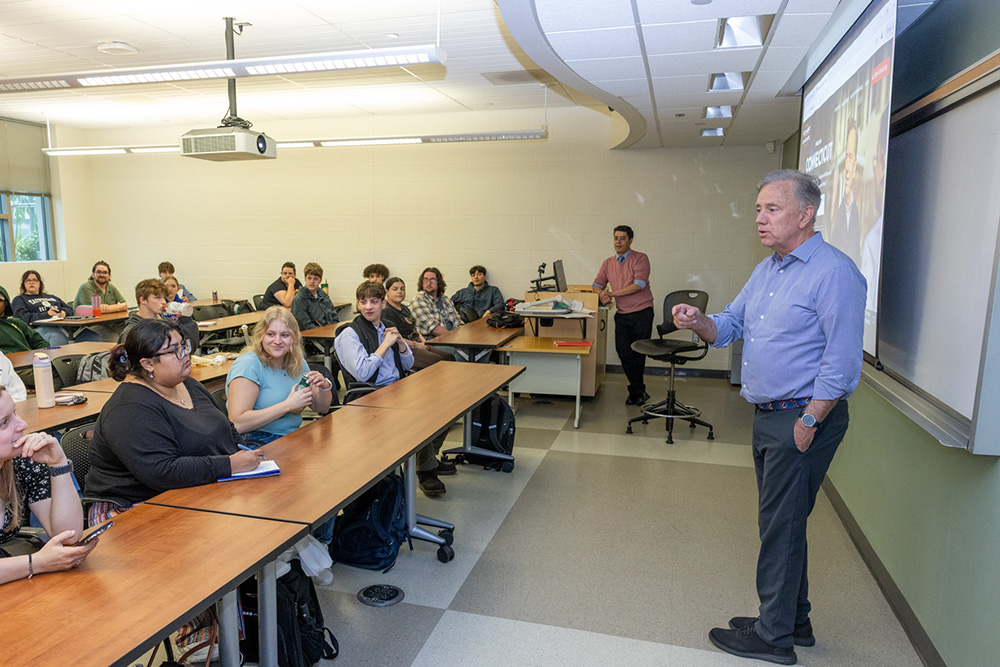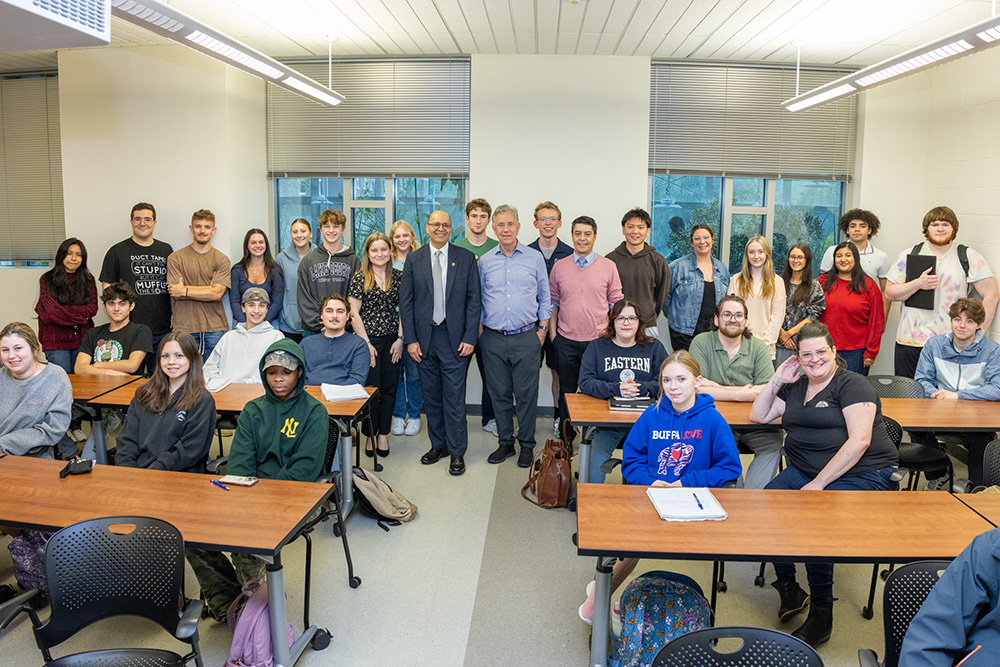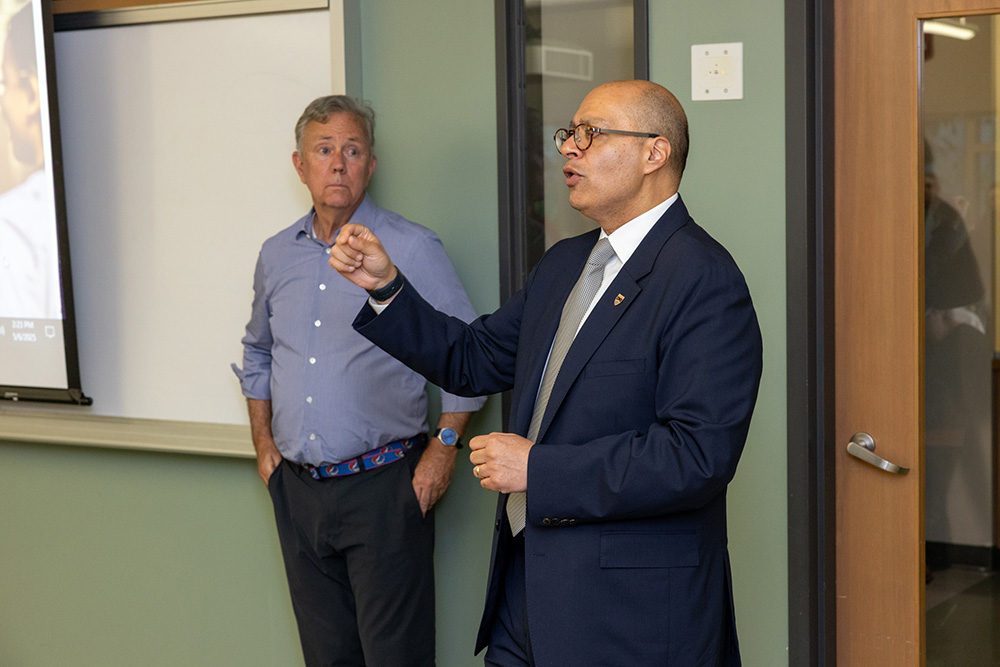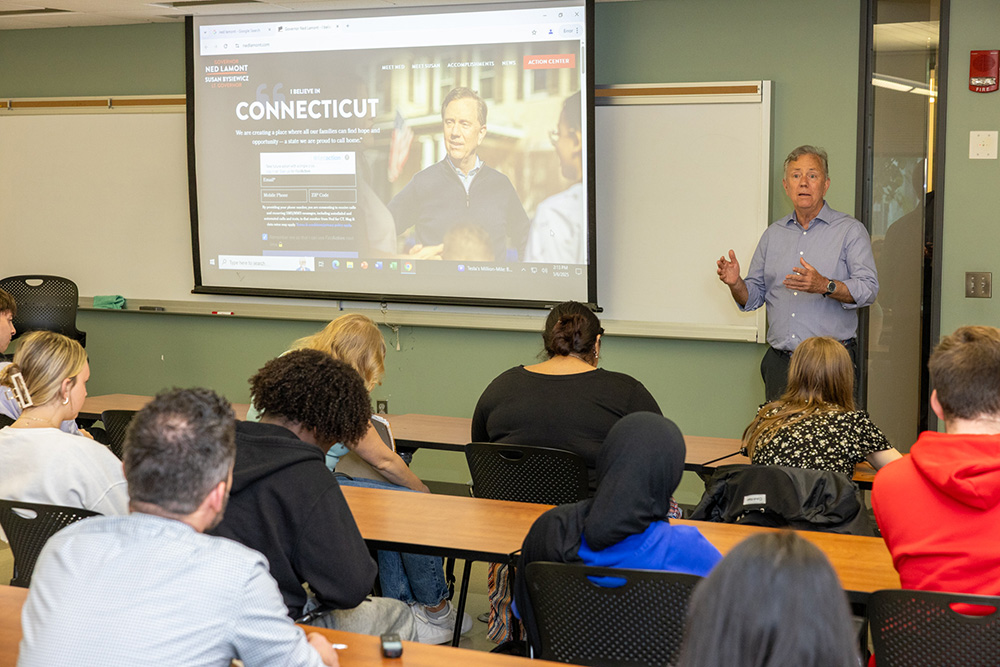- Apply
- Visit
- Request Info
- Give
Governor Lamont discusses globalization, housing, and DEI with students
Written by Michael Rouleau
Published on May 15, 2025
Governor Ned Lamont visited Eastern Connecticut State University on May 6, where he met with university administrators and students during a productive and thoughtful campus visit. After a meeting with Eastern President Karim Ismaili, Lamont joined approximately 30 students in Professor Martin Mendoza-Botelho’s international politics course for an engaging classroom discussion.
“Governor Lamont had an extremely positive visit to Eastern, highlighted by a dialogue with students on issues ranging from college affordability to housing policy to recent developments in international relations,” said President Ismaili. “It provided him with a powerful example of what we do best at Eastern, and why an investment in a public liberal arts university is an investment in the future of Connecticut."
Introducing Lamont to his class, Professor Mendoza-Botelho noted that Lamont is in his sixth year as governor and has consistently maintained high approval ratings. He emphasized the governor’s business background, which provides him with a unique “economic and political sensibility.” Mendoza-Botelho also cited several accomplishments of Lamont’s tenure, including initiatives in clean energy and public health, the legalization of recreational marijuana, and Connecticut’s historic budget surplus.
Lamont acknowledged the uncertain times facing college students and the world at large. He recognized that many in the classroom had their formative high school years disrupted by the COVID-19 pandemic, but assured students that all generations face different challenges.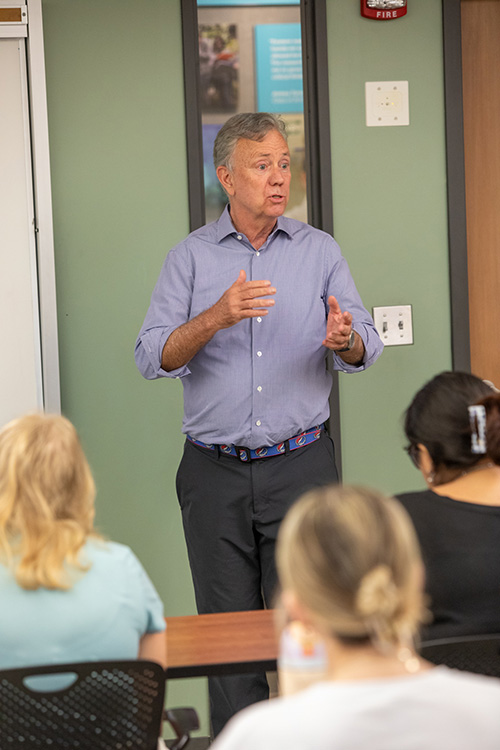
“This is a country that’s pretty resilient,” he said. “We’ve been confronted by headwinds like this before.”
Students came prepared with questions, asking about Connecticut’s role in a globalized economy, the state’s teacher shortage, the ongoing housing crisis, and more. Addressing the issue of globalization and trade, Lamont remarked, “We are intertwined [with the world economy]. America is stronger — and the world is stronger — when we work together.”
He cited a recent trade visit to India, where he met with government and business leaders, promoting Connecticut as “a good on-ramp to the American economy.”
On the topic of housing, Lamont shared that new construction is on the rise, particularly in urban areas, and that new programs are supporting first-time homebuyers. Lamont noted that homeownership is essential for building wealth and developing stake in a community. “Housing is also necessary to attract companies to Connecticut and to retain young people,” he said.
Reflecting on his 30-year career in the telecommunications industry, Lamont emphasized the contrast between business and government. “Government is not business — we have a higher set of values. You’re looking out for people. You have to do a better job of explaining what you’re doing and why,” he said, adding that he believes more business professionals should get involved in public service, and vice versa, to help “broaden perspectives.”
Toward the end of his visit, Lamont posed a question to the class on a timely topic: “What would you recommend to a governor who’s told they’ll lose federal funding if they don’t cut DEI programs?”
Students overwhelmingly voiced their support for DEI, but also acknowledged the governor’s conundrum of retaining federal support while also maintaining the state’s longstanding values of equity and inclusion.
“America’s greatest strength,” Lamont concluded, “is that people from all over the world — every race, color, and creed — feel welcome. That makes me a strong believer in DEI.”
If the federal government objects to the terminology, Lamont said that he is okay with using different language, as long as the principles of equity and inclusion remain intact.



